Radio revealed to the world the Boswell Sisters’ rich and complex vocal style, one born of the musical traditions of New Orleans as well as the Boswells’ classical training. Their innovative style—full of unpredictable harmonies, vocal mimicry of jazz instrumentation, playful phrasings, and drastic changes in tempo and mood within a song—made them some of the biggest stars of radio’s golden age. On popular programs such as The Camel Pleasure Hour and The Woodbury Hour, they were featured alongside renowned musicians such as Bix Beiderbecke, Benny Goodman, and their longtime friend and collaborator Bing Crosby.
The sisters also made their mark in Hollywood, performing (as themselves) their hit “Crazy People” in the 1932 feature film The Big Broadcast, starring Crosby and comedy duo George Burns and Gracie Allen. In Moulin Rouge (1934), starring Constance Bennett, they again appeared as themselves, singing “Coffee in the Morning (and Kisses in the Night).”
Their success on air and on screen led to national and international tours and shows at renowned venues such as RKO Keith’s Theater in New York City and London’s Palladium Theatre. They also landed record contracts with Brunswick, in 1931, and Decca, in 1935, recording with the Dorsey Brothers, Glenn Miller, Artie Shaw, and many other well-respected musicians of the time. In 1935 the Boswells scored a number-one hit with “The Object of My Affection.”
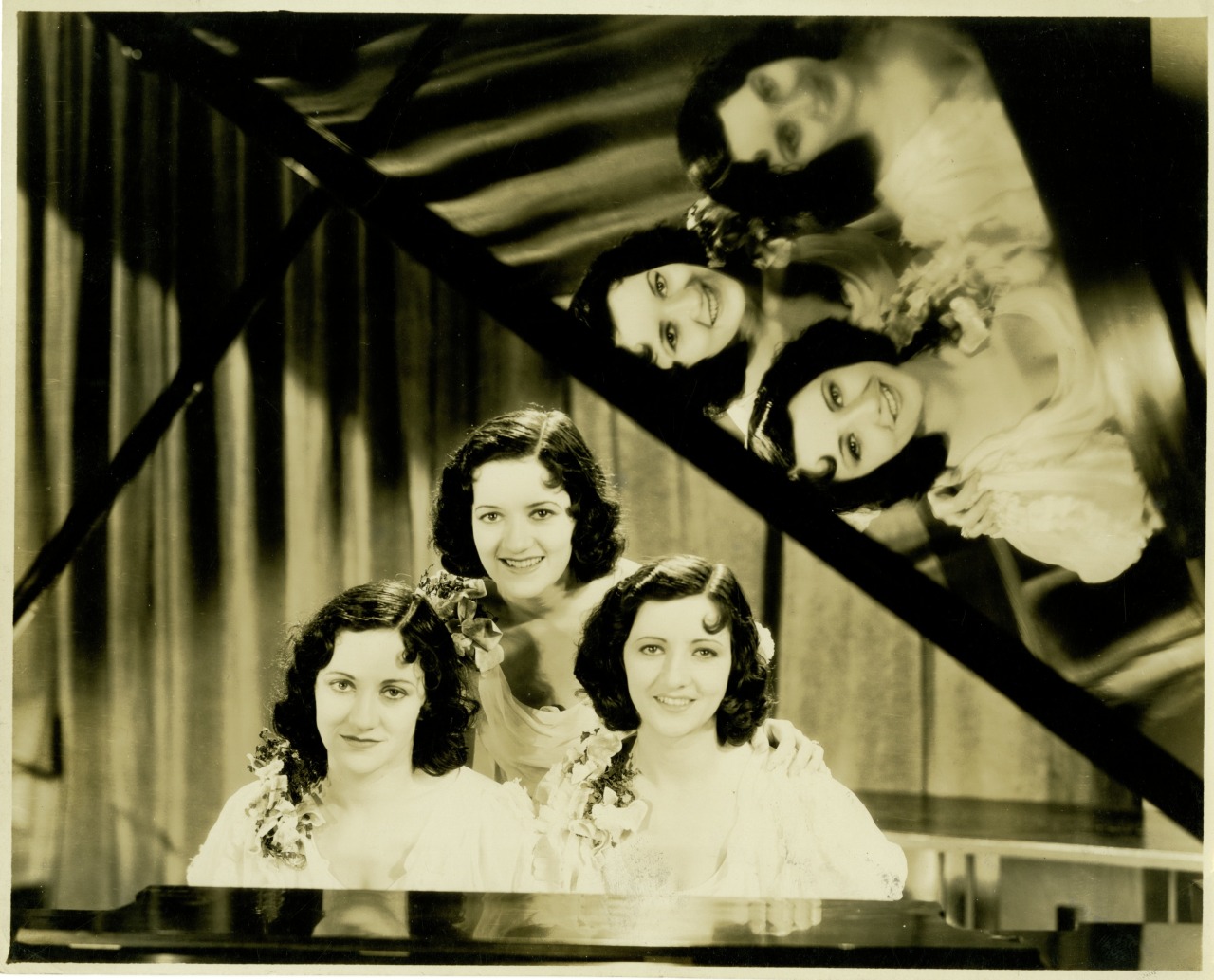
The Boswell Sisters in The Big Broadcast
1932; photoprint
The Historic New Orleans Collection, gift of the Boswell Museum of Music, 2011.0315.100
The Boswells’ first forays into the film industry were behind the scenes, dubbing music for pictures in which they did not appear on-screen, but in 1931 they got their close-up, starring in the Paramount film short Close Farm-ony. A series of appearances in live and animated film shorts followed, culminating in the Boswells’ first feature-film performance, in 1932’s The Big Broadcast. The film, a musical romantic comedy, was an adaptation of William Ford Manley’s 1931 play Wild Waves.
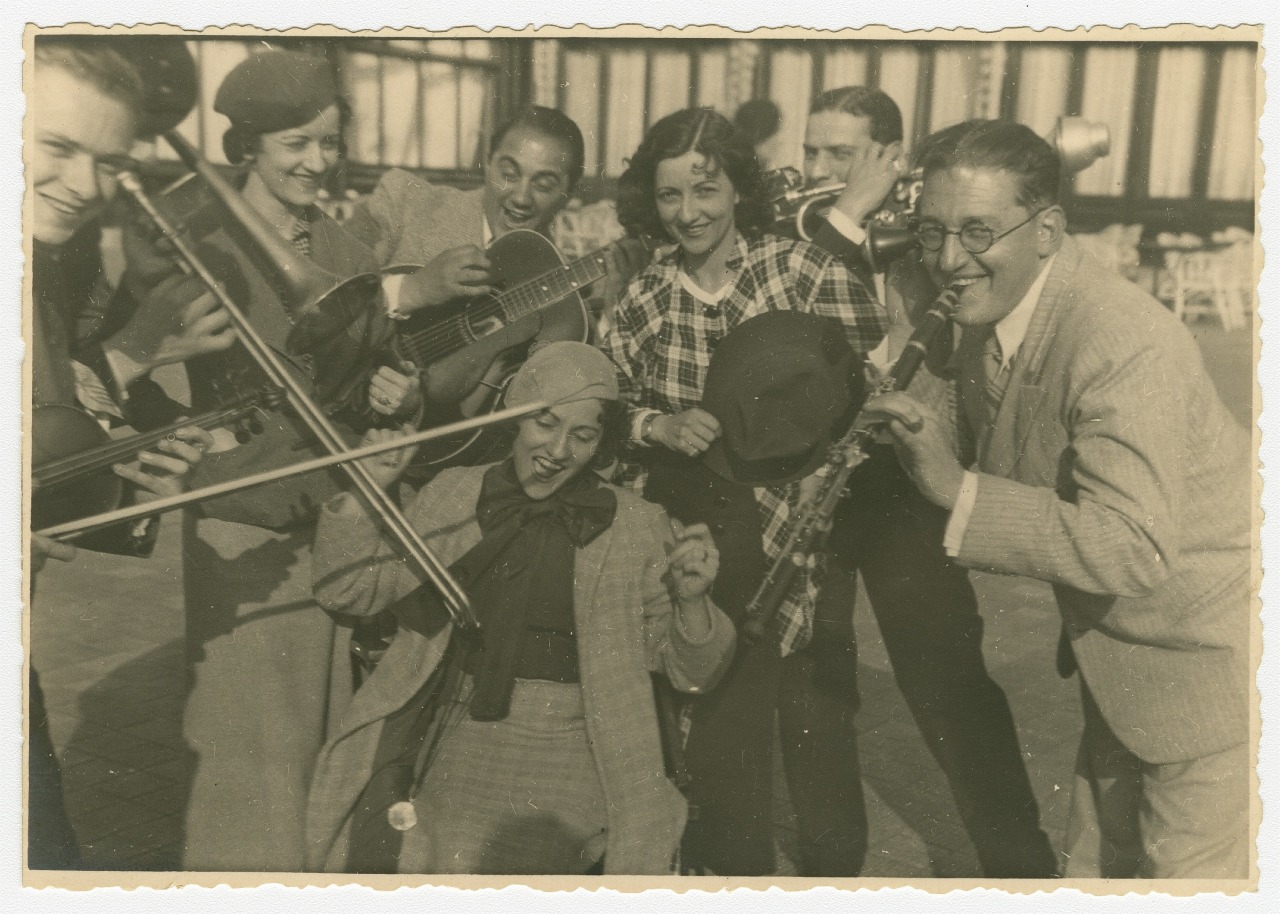
The Boswell Sisters and the Ramblers
1933; photoprint
The Historic New Orleans Collection, gift of the Boswell Museum of Music, 2011.0315.109
Near the end of their first European tour, in the summer of 1933, the Boswell Sisters visited the Netherlands, where they worked with Dutch big band the Ramblers. The two groups joined forces again in 1935, when they were both on the Decca label, and collaborated during the Boswells’ second European tour. Pictured here are five members of the Ramblers alongside the sisters, in a public square in Scheveningen.
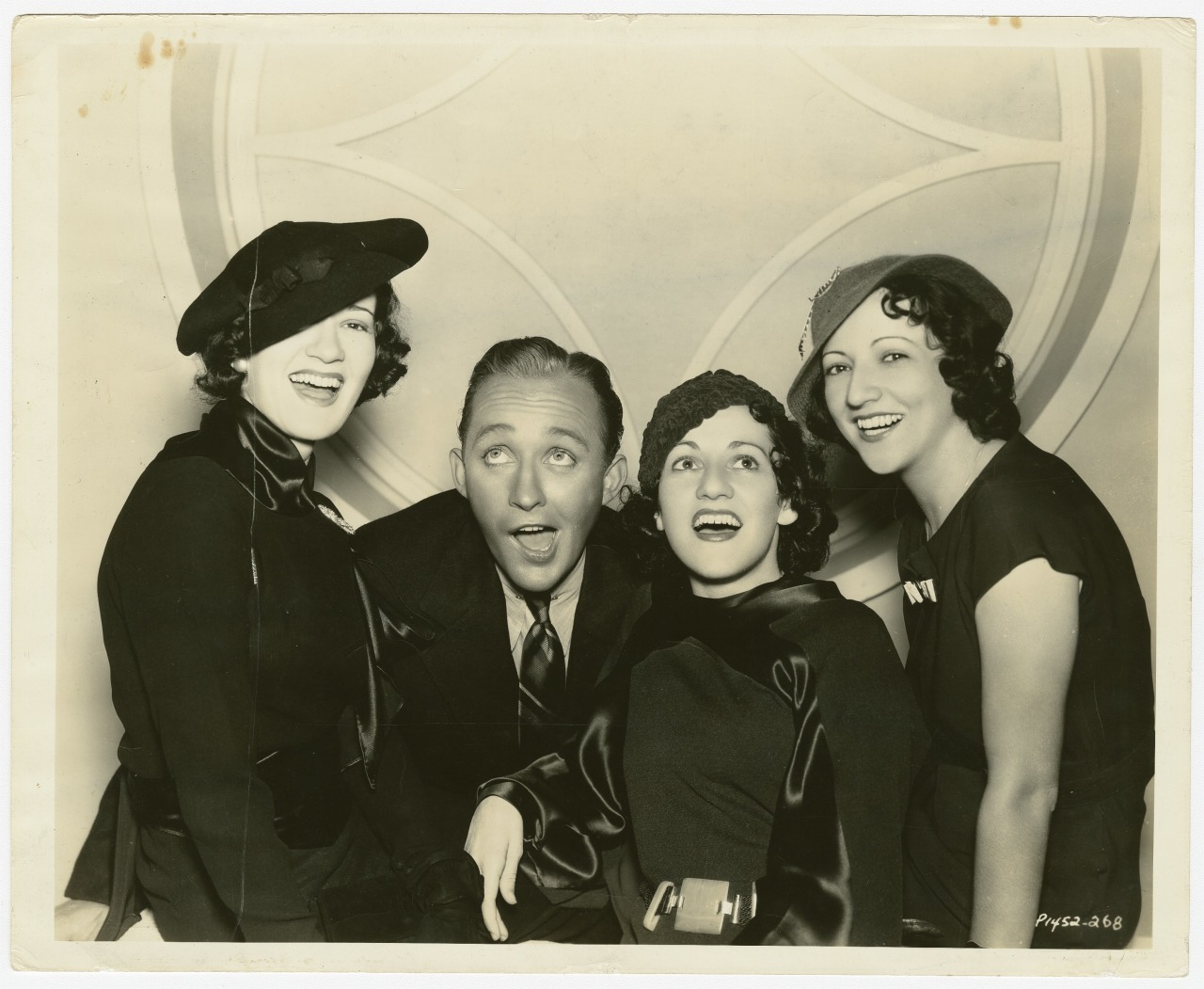
Bing Crosby and the Boswell Sisters
1934; photoprint
The Historic New Orleans Collection, gift of the Boswell Museum of Music, 2011.0315.112
The Boswell Sisters’ enduring friendship with Bing Crosby began in 1930, when they first worked with him on the CBS radio program California Melodies. After moving to New York the Boswell Sisters regularly worked with Crosby on NBC’s The Woodbury Hour, sponsored by Woodbury Facial Soap, and in 1932 they appeared in the same movie, The Big Broadcast. More than just a professional relationship, their friendship included frequent dinners with Crosby and his wife, Dixie Lee, a fellow transplant from New Orleans. In January 1934, onstage at the first Screen Actors Guild ball, Crosby joined actors Frank McHugh and Charles Butterworth in a comedic imitation of the Boswell Sisters. Connie and Crosby would continue to work together during her solo career, making several recordings and frequently performing on radio and television.
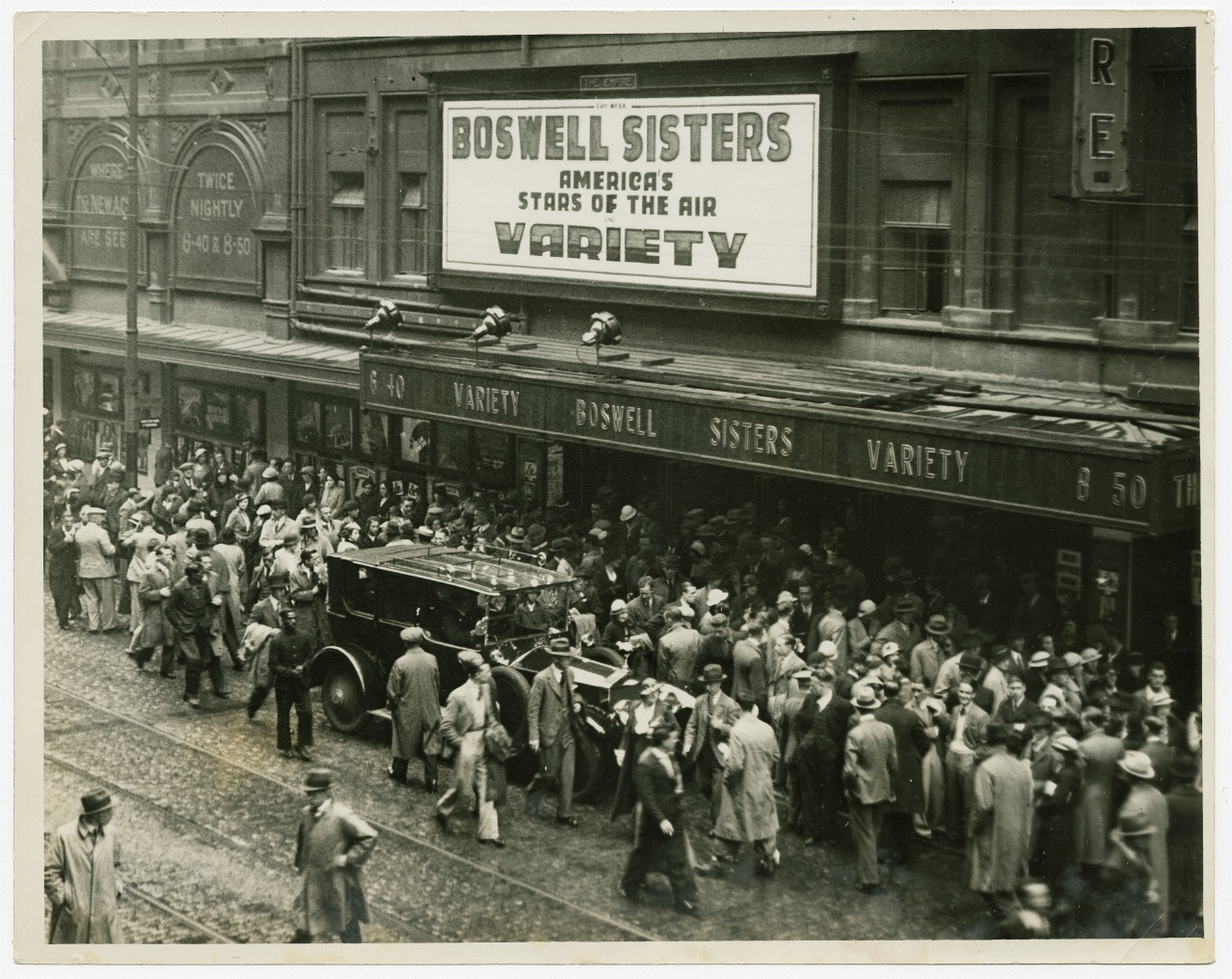
Boswell Sisters billboard at the Glasgow Empire Theatre
1935; photoprint
by Bernard Sykes, photographer
The Historic New Orleans Collection, gift of the Boswell Museum of Music, 2011.0315.115
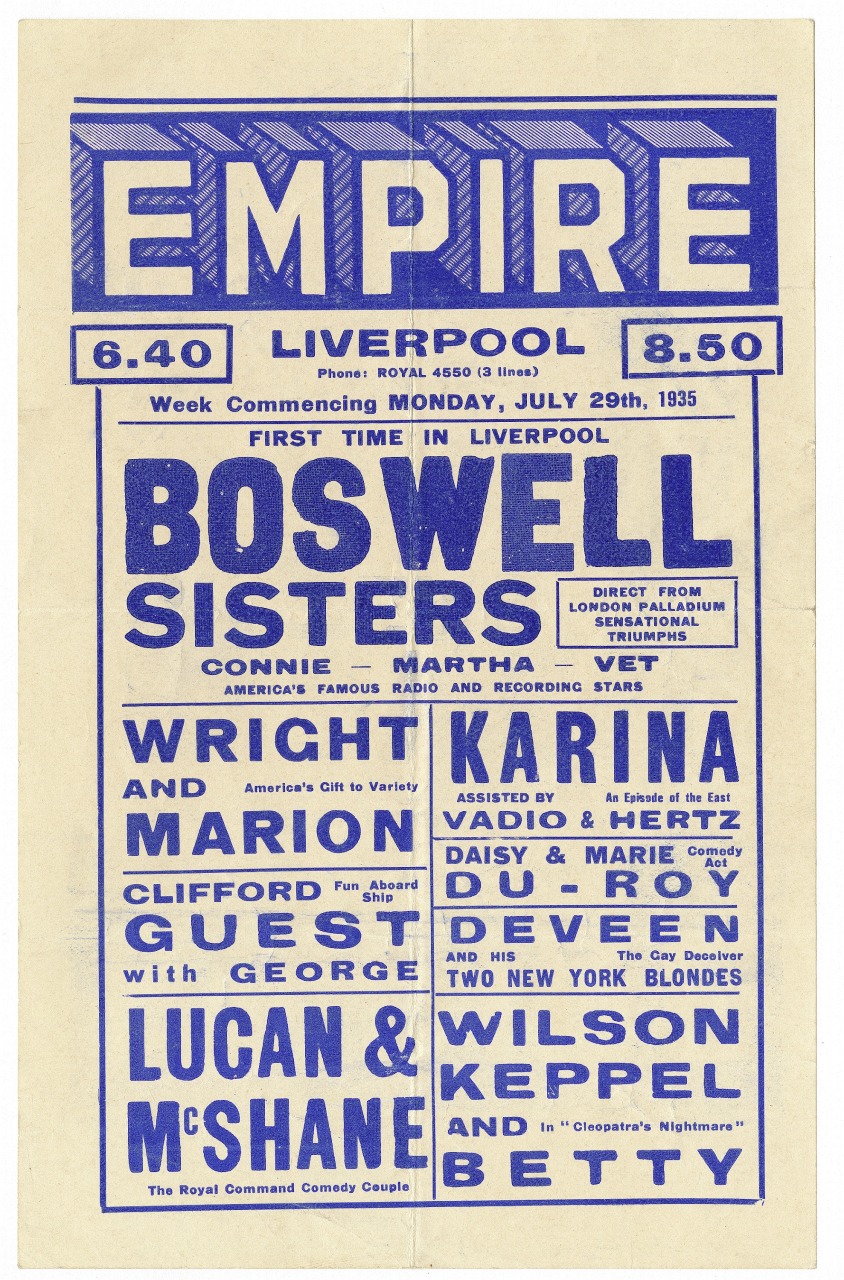
Empire Liverpool concert program
1935; program
The Historic New Orleans Collection, gift of the Boswell Museum of Music, 2011.0315.50
In Liverpool, the third stop on the Boswells’ second tour of Europe, the sisters spent a week performing, participating in the ceremonies of the Royal British Legion’s Joy Week, a carnival-type fundraiser to support British troops.
